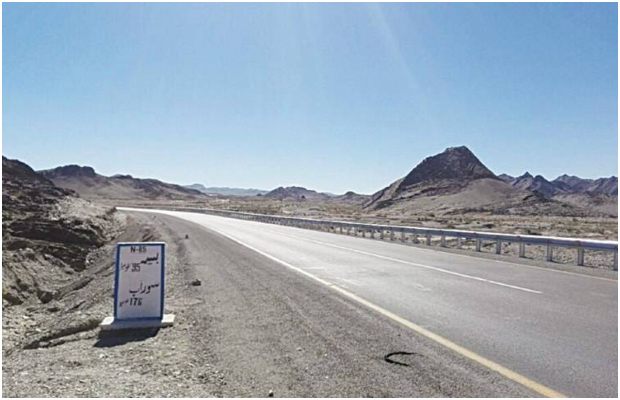The Balochistan government has banned night-time travel — primarily for public transport — on major highways in several districts amid growing control of Baloch “pro-independence” armed groups.
Deputy commissioners of Gwadar, Kachhi, Zhob, Nushki, and Musakhel issued separate notifications prohibiting evening and overnight travel on key routes. The Quetta administration also declared that public transport departing from the city would not be allowed to travel at night.
Quetta Commissioner Hamza Shafqaat said a meeting of senior officials concluded that vehicles would be barred from travelling on the Karachi-Quetta highway (N-25), also known as the RCD Highway, after dark.
“It was decided that public transport would be prohibited from travelling on the Karachi-Quetta highway at night, effectively cutting off Balochistan from Sindh,” Shafqaat said.
He added that buses must depart on time to avoid delays, and CCTV cameras and tracking systems on all passenger coaches must remain operational. Transport companies were instructed to comply with the new directives.
In a separate notification, Gwadar Deputy Commissioner Hamoodur Rehman said night travel on the Makran Coastal Highway (N-10) would be suspended until further notice.
Similar restrictions were announced in Kachhi, where public and private transport on the Quetta-Sukkur highway (N-65) has been banned between 5pm and 5am.
Vehicles heading from Sibi to Quetta during these hours will be stopped at the Nari River bank in Sibi, while those traveling from Quetta will be stopped at Kolpur.
A separate order by Zhob DC Mehboob Ahmad barred public buses and coaches from travelling through Zhob on the N-50 National Highway — linking Balochistan to Khyber Pakhtunkhwa — at night. Transporters were told not to travel between 6pm and 6am from March 27 until further notice.
Nushki DC Amjad Soomro and Musakhel DC Juma Dad Mandokhail issued similar notifications, banning public transport on the Quetta-Taftan (N-40) and Multan-Loralai (N-70) highways during the same hours.
Rising Highway Control by ‘Pro-Independence’ Groups
The restrictions follow a coordinated campaign by Baloch Raji Ajoi Sangar (BRAS), an umbrella group of Baloch armed organisations, which claimed to have taken control of major highways across Balochistan on March 27.
According to a group statement, BRAS fighters set up roadblocks at more than 30 locations, disrupting traffic for several hours. The group said its fighters identified and killed security personnel travelling in passenger buses and destroyed multiple vehicles, including an LPG tanker.
On the Coastal Highway between Pasni and Ormara, the road was blocked for two hours. BRAS claims that six Pakistani army personnel traveling on passenger buses were identified and killed, and an LPG tanker was set ablaze. In a separate incident, four fertilizer-carrying trawlers were intercepted and burned; their drivers were released after being warned.
Similar operations were reported in Kech, Kalat, Bolan, Nushki, Mastung, Khuzdar, Barkhan, Panjgur, and other districts.
In its statement, BRAS said the campaign was aimed at “continuously challenging the enemy’s structure, speed, and confidence” and declared that “these attacks will continue with greater intensity until the liberation of the Baloch motherland.”
Quetta: Ban on Eid Picnics Amid Tensions
Meanwhile, the Quetta district administration has banned all public picnicking during Eid-ul-Fitr in response to the tense security situation.
According to a notification issued by the Deputy Commissioner of Quetta, Section 144 has been imposed, and all recreational activities in areas such as Hanna Urak and Shaban have been prohibited.
Authorities advised residents to avoid visiting these sites during the Eid holidays, warning that legal action may be taken against violators.

